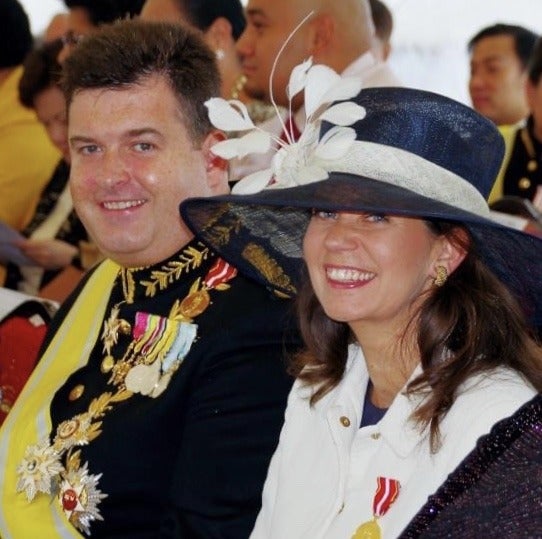
Anthony Bailey, former fundraiser to Tony Blair and estranged husband to Princess Marie-Therese von Hohenberg, has been stripped of his OBE by King Charles.
An official notice circulated this week announced Bailey’s appointment ‘to be an Officer of the Civil Division of the Most Excellent Order of the British Empire’ is to be ‘cancelled and annulled and that his name shall be erased from the Register of the said Order’.
The unusual step comes 18 months after Bailey was handed a 12-month prison sentence for contempt of the court during a lengthy divorce battle in the UK. Sital Fontenelle, partner in the Family & Divorce team at Kingsley Napley LLP, explains why the decision to jail him came to be.
Anthony Bailey and his former wife, Princess Marie-Therese von Hohenberg — who is the great-granddaughter of Archduke Franz Ferdinand — have been embroiled in litigation in the English courts since 2016. Following a hearing, the princess was awarded a financial settlement of over £2 million from Bailey, to be paid from the sale of a family home in England, and a villa in Portugal. Later, Bailey was found in contempt of court after leaving the UK for Portugal while still owing part of the settlement to Princess Marie-Therese.
The six-bedroom Portuguese villa is owned by a Cypriot trust of which Bailey is the settlor. According to court documents, Bailey claimed throughout the proceedings that the villa is not his — a story he maintains to this day. This did not wash with the English judge, who has extensive powers to look beyond legal ownership to determine who really has the benefit of an asset. Following close examination of the trust documents, the judge concluded that Mr Bailey had complete control of the Cypriot trust.
Princess Marie-Therese has reportedly received approximately half of her financial settlement. The other half was expected from the sale of the villa, but the judge ruled that Bailey had failed to take steps to release the remaining assets to the Austrian princess, or to sell the Portugese villa. In his ruling, the judge, Mr. Justice Peel, said, ‘His behaviour displays wilful obstruction and barefaced contempt for the court process. It is a shameful spectacle deserving considerable opprobrium.’
So, how does this happen? Many ultra-high net worth families set up foreign trusts as part of their sophisticated tax planning, and to preserve wealth for future generations. An English court can deem the assets within a foreign trust a ‘resource,’ and will find creative ways in which to force the beneficiary to part with trust assets to ensure that the needs of the parties — and in particular, their children — are met. If required, the English courts will not hesitate to join the trustees (including foreign trustees) to the financial remedy proceedings in order to compel disclosure of trust documentation, and to ensure compliance with the final order.
The powers of the English court should not be underestimated. It regularly hears arguments similar to those deployed by Bailey in his divorce battle with Princess Marie-Therese. Better protection of assets is perhaps to be found in the form of a prenuptial agreement (or post-nuptial agreement) drawn up to help with wealth protection. Whilst prenuptial agreements are not legally binding in England and Wales (yet), they have certainly gained favour in the English courts since the Supreme Court decision of Radmacher in 2010.
Image: Wikimedia Commons






